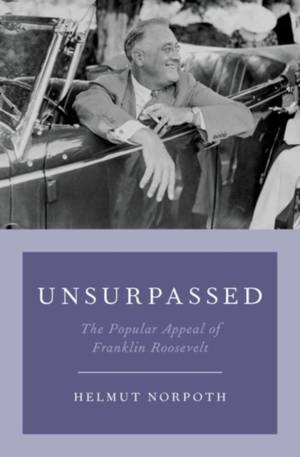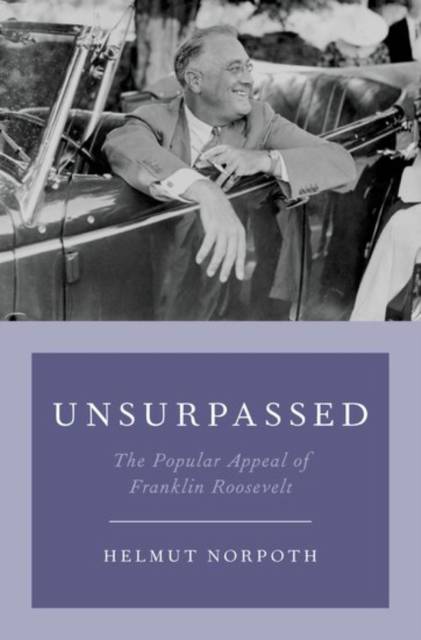
- Afhalen na 1 uur in een winkel met voorraad
- Gratis thuislevering in België vanaf € 30
- Ruim aanbod met 7 miljoen producten
- Afhalen na 1 uur in een winkel met voorraad
- Gratis thuislevering in België vanaf € 30
- Ruim aanbod met 7 miljoen producten
Zoeken
€ 185,45
+ 370 punten
Omschrijving
Franklin Roosevelt was not only the first US president to be covered by public opinion polls, but his ratings have consistently exceeded those of all subsequent sitting presidents, save for John F. Kennedy. Moreover, Roosevelt also stands out with a popular appeal that is unsurpassed by any of his successors serving at least a full term. The key to his approval, as this book shows, was wartime leadership, not economic performance. It began with policies preparing the nation for war in the two years before formal entry. To use FDR's own coinage, it was making the United States the "arsenal of democracy" in the battle against tyranny. That pursuit, not the New Deal, earned him high marks with the American people and re-election to an unprecedented third term. World War II--and its heavy human toll--did nothing to diminish FDR's popularity. As such, the FDR experience defies major paradigms of presidential politics. Yet, Roosevelt has been relatively ignored by scholars of public opinion. What can FDR's experience teach us and his successors about rousing broad public support, particularly during wartime? What light does his success shed on the failures of Presidents Truman, Johnson, and George W. Bush in Korea, Vietnam, and Iraq? On key issues, mainly with foreign policy, FDR had to contend with an American public that opposed his plans at the outset. Helmut Norpoth argues that Roosevelt had an unparalleled ability for leadership, especially through the fabled "fireside chats" and his appreciation of opinion polls, that enabled him to move the public to embrace his policies. In this book, Norpoth takes an in-depth look at how FDR's leadership swayed public opinion, comparing his experience to his successors to draw broad conclusions about what makes for successful presidential politics.
Specificaties
Betrokkenen
- Auteur(s):
- Uitgeverij:
Inhoud
- Aantal bladzijden:
- 216
- Taal:
- Engels
Eigenschappen
- Productcode (EAN):
- 9780190882747
- Verschijningsdatum:
- 27/09/2018
- Uitvoering:
- Hardcover
- Formaat:
- Genaaid
- Afmetingen:
- 160 mm x 236 mm
- Gewicht:
- 793 g

Alleen bij Standaard Boekhandel
+ 370 punten op je klantenkaart van Standaard Boekhandel
Beoordelingen
We publiceren alleen reviews die voldoen aan de voorwaarden voor reviews. Bekijk onze voorwaarden voor reviews.







